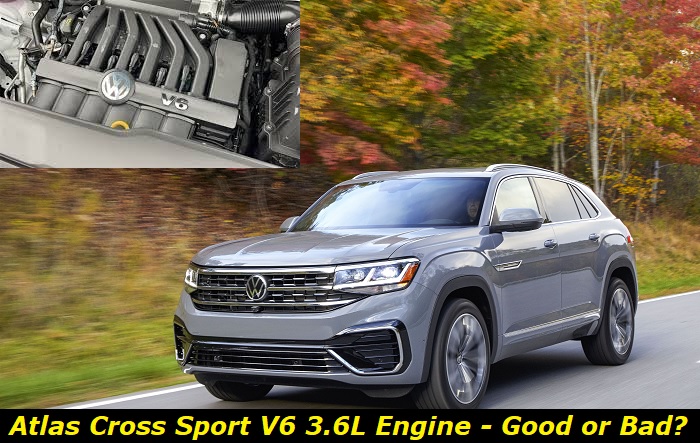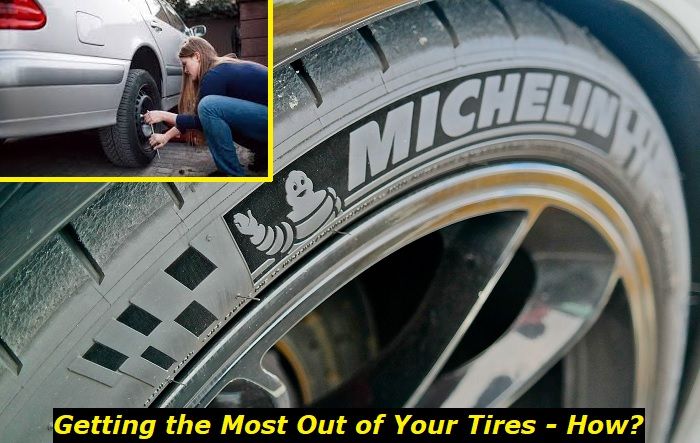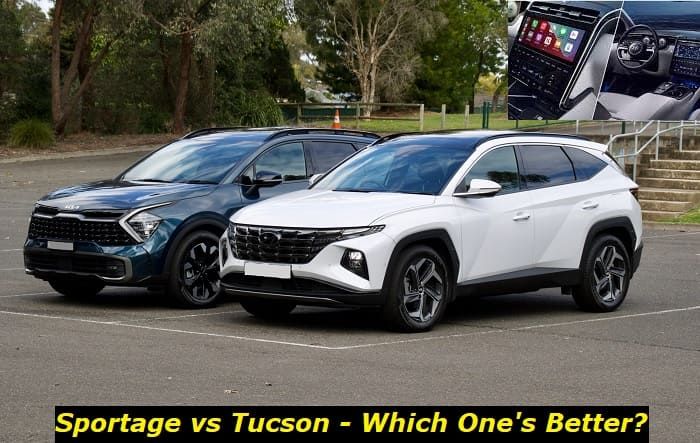One of the most popular midsize SUVs in America these days is the Volkswagen Atlas Cross Sport. It's a little different from the simple Atlas model thanks to a sportier design of the exterior and a more compact interior. We see that the Cross Sport version of the Atlas is now even more popular than its original SUV version, so we decided to have a look at this model.
Today, we'll tell you about the 3.6L V6 engine that powers the Volkswagen Atlas Cross Sport in its best trims - we'll cover its durability and main specs. Also, we'll see if this engine is a good choice or if you should choose another option. You should know that this is the same engine that powers the original version of the Atlas SUV, so everything in this article should be considered true for both Atlas models.

Key features and my opinion about the engine
- Production years:2016-now
- Average lifespan of 3.6 VR6:190,000-210,000 miles
- Fuel supply type:direct injection
- Power range:250-280 hp
- Fuel efficiency:bad
- Engine block material:cast iron
- Engine reliability score:medium
- The most common problems:carbon buildup on intake valves, crankcase ventilation system issues, high-pressure fuel pump issues, various leaks.
Key facts about the 3.6L V6 engine in the Volkswagen Atlas Cross Sport
Right, this is the same V6 engine that powers the original Atlas SUV. It's the 3.6L EA390 CDVC engine with 6 cylinders that offers 276 horsepower (not a lot, actually) and 266 lb-ft of torque. The engine is not the only option that is available for the vehicle. You can also choose the cheaper 2.0L turbocharged option and this seems like a better engine for those who hate paying a lot for fuel.
But today we will concentrate exactly on the V6 version which seems to be more durable and reliable. At least, from what we know about this powerplant. The 3.6L V6 engine that powers the Atlas Cross Sport has been manufactured since 2016 and installed in many Volkswagen vehicles including the Atlas and the Teramont. The engine is codenamed CDVC.
Here are some basic facts you will want to know about it:
- this is a non-turbocharged engine with a displacement of 3.6L and 6 cylinders;
- the engine has a cast-iron block and an aluminum head which is the standard composition of the V6 unit;
- the CDVC engine is fitted with direct injection which gives it both advantages and problems;
- we should thank VW engineers for hydraulic lifters - no need to adjust the valves once every 2-3 years;
- phasers are used on both shafts and this is good for fuel economy but bad for the maintenance cost of a high-mileage engine;
- the claimed gas mileage is 18 MPG in the city and about 24 MPG on highways, but in real life, the consumption is much worse;
- the engine is paired with the 8-speed automatic transmission which is obviously better than the DSG transmission VW used to have in nearly all its cars;
- the engine is considered pretty simple in terms of technology, it's a classical VR6 engine that should last long.
We don't agree with some experts that say this engine is the best of the kind. We still think it's one of the simple engines that should be better currently. And yes, the unit still has some downsides like poor gas mileage and minor problems that will bother you from the very first month of use.
But still, we want to tell you that it's hard to compare the number of problems you get with the V6 3.6L engine and with the 2-liter TSI version. The turbocharged Volkswagen engine is so much worse in terms of reliability and durability that we wouldn't even think of buying it. Especially when dealers offer a great alternative - the V6 non-turbo engine.
What about the durability of the Atlas V6 engine?
Longevity is one of the key questions and here we want to talk about it in a separate section. Actually, durability is one of the most important advantages that the 3.6L V6 engine in the Atlas Cross Sport is going to provide you with. It's really durable and is going to live at least 230,000 miles or even more if you give it a little TLC.
We've still seen some of the VR6 engines of this generation fail as early as 100K miles with poor maintenance. So, at the end of the article, we'll also outline some important recommendations on how to prolong the life of the CDVC engine in your Atlas Cross Sport. Hope they will help you spend much less money on repairs!
Keep in mind that the 230,000-mile longevity is the average figure and many owners should be able to drive their Atlas V6 engines even longer than that.
Common problems and solutions for them
When it comes to engine problems, Volkswagen becomes one of the world's leaders. You may have heard about the issues with engines in almost all recent VW models. But the VR6 version is not bad at all even if you compare it with engines made by other companies. So, we should say that these common problems are not that bad and wouldn't make us avoid these engines if we wanted to buy the Atlas Cross Sport SUV.
Here are some common issues with the V6 3.6L VW engine to consider:
1. Insane fuel consumption
Although the claimed gas mileage for city driving is 18 MPG, you will not probably see that consumption on the dash screen. The problem is that once you touch the gas pedal, the fuel seems to flow from the tank directly into the exhaust pipe. At least this is how it seems to work.
People say about 10 MPG when they drive aggressively and this is one of the most important problems of this engine. The consumption is really bad and it will make you pay a lot on the regular basis.
The best solution for this issue is to avoid driving your car aggressively. Also, you should use only high-quality fuel.
2. Intake valves get some buildup
Carbon buildup is one of the most common issues for all direct-injection engines and the 3.6L V6 in your Atlas Cross Sport is not an exception. The engine will need some regular cleaning and this is going to cost you a lot. Unfortunately, there is no solution to this problem. Once every 50K miles or so, you will need to have the valves cleaned.
3. Crankcase ventilation system
The crankcase ventilation membrane seems to be defective because a lot of reports say that it keeps leaking. As the result, the engine may suffer from oil pressure and it also can throw some error messages and codes on the dashboard. The membrane itself is not extremely expensive but it's not easy to diagnose and locate the problem, so it may take some time and budget, too.
4. Fuel pump issues
This is a less common problem but VW mechanics say it may happen with this engine. The HPFP (high-pressure fuel pump) is a pain in your neck wherever you see it. Now, companies install it in gasoline engines and yes, it's a little defective. The problem may occur because of the fuel pressure regulator. Once it malfunctions, the fuel pump starts building up fuel pressure and this may result in leaks. Sometimes, the pump itself will need replacement.
5. Timing chain replacement
The chain itself is not bad and can go about 150,000 miles. But sooner or later it will fail and this is going to be expensive for you. Volkswagen says the chain is designed to live as long as the engine survives, but it's not true. The chain will need replacement if you want to save the engine and drive it at least 200,000 miles or more. The chain, water pump, and tensioner are pretty expensive. The replacement costs are also not pleasant at all.
What should you do to drive the Atlas 3.6L engine longer?
Not all engines of this type will live as long as 230,000 miles. Some of them will obviously die sooner because of the common mistakes drivers make now and then. They may seem to be minor but eventually, they kill the engine much faster than it should die.
Here's what you should do to prolong the life of the engine:
- regularly change the oil and filters - even more often than the manufacturer recommends;
- avoid aggressive driving - this will kill the engine and result in enormous fuel costs;
- buy only OEM parts to repair the engine;
- pay attention to any errors and codes, and have the engine diagnosed regularly;
- if you don't go to the dealership, make sure your mechanics have good experience with VW cars.
Final words
The wonderful 3.6L V6 EA390 CDVC engine is obviously not for everyone. Many buyers will choose a cheaper 2-liter TSI version just because of the fuel consumption and overall price. But the V6 powerplant is better in terms of durability and driving emotions. Just test drive the VW Atlas Cross Sport with both engines to know what we mean.
About the authors
The CarAraC research team is composed of seasoned auto mechanics and automotive industry professionals, including individuals with advanced degrees and certifications in their field. Our team members boast prestigious credentials, reflecting their extensive knowledge and skills. These qualifications include: IMI: Institute of the Motor Industry, ASE-Certified Master Automobile Technicians; Coventry University, Graduate of MA in Automotive Journalism; Politecnico di Torino, Italy, MS Automotive Engineering; Ss. Cyril and Methodius University in Skopje, Mechanical University in Skopje; TOC Automotive College; DHA Suffa University, Department of Mechanical Engineering






Add comment